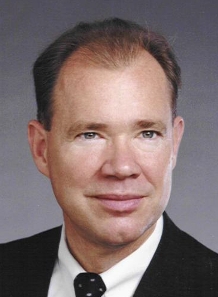Later today, the Governor is going to unveil is proposed 2007-2008 budget. Based on the portions of his State of the State Address from earlier in the week, it sounds like a budget proposal that our readers will like.
Although the State of the State left us in a doubt as to the Governor’s reasons for proposing pretty heavy cuts in state government (we here at the FR feel that significant cuts in state government levels would be a good thing whether the state had enough tax income or not — because we also think that taxes are too high in the Golden State), we are pleased that for very pragmatic reasons, the Governor has pulled out his red pen.
In order to spend more time heaping anticipated praise on the Governor’s proposed budget, I thought I would take a little bit of time to focus some sharp criticism on one small part of the Governor’s plan — a proposal to tax property insurance premiums for every policy, residential and commerical in the state. This proposal would increase the size of state government by over a hundred million bucks a year, said moneys to go towards helping the state’s efforts to fight wildfires.
First and foremost — Californians are already over taxed. If capital is needed for fighting fires, that should be weighed against other current uses of tax dollars, and reprioritize.
Secondly — this proposal represents another example of the Governor renigging on his no new taxes pledge. It’s actually made more aggregious because the Governor wants to label this as a "fee" instead of a tax — which insults the intelligence of everyone engaged in public policy discussions in California.
Third — As a Republican, Arnold Schwarzenegger needs to remember that collectivism and socialism are the ideology of the left. Fighting fires is not a "state" responsibility, per se. That is to say that there are some places where the threat of fire is more likely, and other places where it is not. It makes no sense whatsoever to tax property owners statewide to, in essence, subsidize those would live in a more fire prone area. Those choosing to live there should assume the risk. Perhaps homeowners in these areas might appropriately help to finance their protection. But a statewide tax?
Today, we feature a great column by Assemblyman Mike Duvall, who dead-pans the Governor’s proposed firefighting tax. If you don’t know Mike Duvall, he’s a smart guy who understands insurance and business issues. He carries a lot of credibility writing on this subject.
Also, I reached out to Jon Coupal, President of the Howard Jarvis Taxpayers Association, to get his take on this. Jon minced no words nor wasted no time in giving me this statement:
 This is a tax, not a fee. It is for a generalized governmental service without the requisite nexus for a true fee. The bulk of these revenues will go to CDF, but many urban residents already receive fire protection from their city fire department and thus receive no benefit from the expenditures. How else do we know this is tax? Consider that the owner of a 10 acre vacant parcel in the forest won’t be paying this fee because there is no improved structure on the property and thus no or little insurance premiums paid . And yet, it is very likely that CDF would have to fight a fire on that property. Also consider all the property which is owned by self-insured businesses. They would be off the hook entirely and yet receive the same “benefits” as the rest of us. The abject lack of nexus or proportionality render this exaction a clear tax. And we doubt that even under the more liberal standards articulated in the infamous Sinclair Paint case it would withstand judicial scrutiny.
This is a tax, not a fee. It is for a generalized governmental service without the requisite nexus for a true fee. The bulk of these revenues will go to CDF, but many urban residents already receive fire protection from their city fire department and thus receive no benefit from the expenditures. How else do we know this is tax? Consider that the owner of a 10 acre vacant parcel in the forest won’t be paying this fee because there is no improved structure on the property and thus no or little insurance premiums paid . And yet, it is very likely that CDF would have to fight a fire on that property. Also consider all the property which is owned by self-insured businesses. They would be off the hook entirely and yet receive the same “benefits” as the rest of us. The abject lack of nexus or proportionality render this exaction a clear tax. And we doubt that even under the more liberal standards articulated in the infamous Sinclair Paint case it would withstand judicial scrutiny.So, what now? It is our hope that the Governor will view the rapid, negative response to this particular trial balloon as reason to pull back the idea. The very bad idea.
Care to read comments, or make your own about today’s Daily Commentary?
Just click here to go to the FR Weblog, where this Commentary has its own blog post, and where you can read and make comments.

